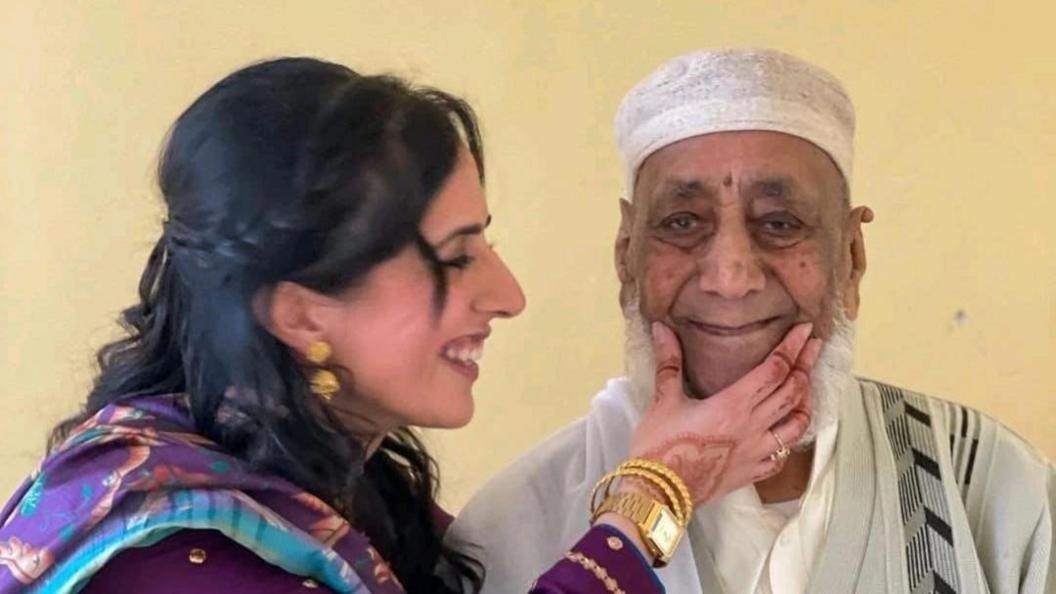Family calls for medal for WW2 RAF Regiment 'bright star' hero
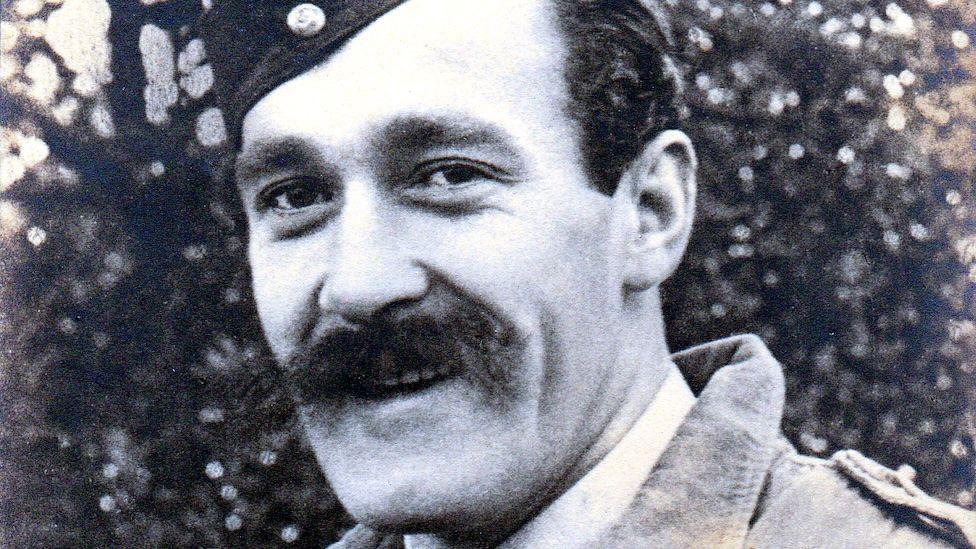
Wing Commander Cuthbert "Cubby" Lander led the 1307 Wing HQ RAF Regiment at the Battle of Meiktila in March 1945
- Published
The family of a man who died in a crucial World War Two battle in Burma 80 years ago say he is long overdue a medal for his leadership.
Wing Commander Cuthbert "Cubby" Lander from Northumberland led the 1307 Wing HQ RAF Regiment, external at the Battle of Meiktila in March 1945 and was killed aged 30 during a night-time patrol.
His pivotal role in the battle was remembered with an annual dinner at the regiment's headquarters, RAF Honington, near Bury St Edmunds, Suffolk.
Wing Cdr Lander's niece Penny Fell, 81, said: "It's absolutely times like this VJ Day milestone that we should be remembering the sacrifices that war calls for.
"And - both for the regiment and our uncle - where the sacrifice has been great and the contribution significant, there isn't a shelf life on honour or gratitude."
VJ Day stands for Victory over Japan Day and commemorates 15 August 1945 when Japan surrendered, bringing the Second World War to a complete end.
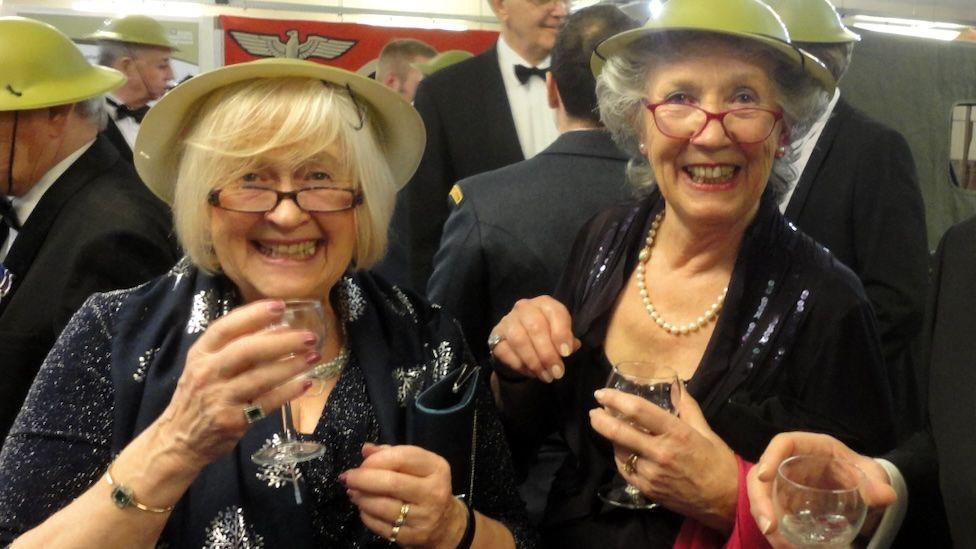
Penny Fell (left) and her late sister Juliet Francis were invited to the RAF Regiment's annual dinner in honour of their uncle in 2020
The Battle of Meiktila was both a significant milestone in the reconquest of Burma by Allied forces from Japan and one of "the greatest and proudest battle honours", external for the newly-formed regiment, said the Royal Air Force Benevolent Fund.
"The unusual thing about Lander is he was a wing commander, but he was leading a clearance patrol of the airfield when he died, partly because they'd lost so many officers and also because he was a man of action who the troops looked up to terrifically," said Warrant Officer Mac MacDonald, 60, manager of the RAF Regiment Heritage Centre.
"Not many other wing commanders would have done so or been able to - and in other circumstances, he would have been awarded some kind of medallic recognition," WO MacDonald added.
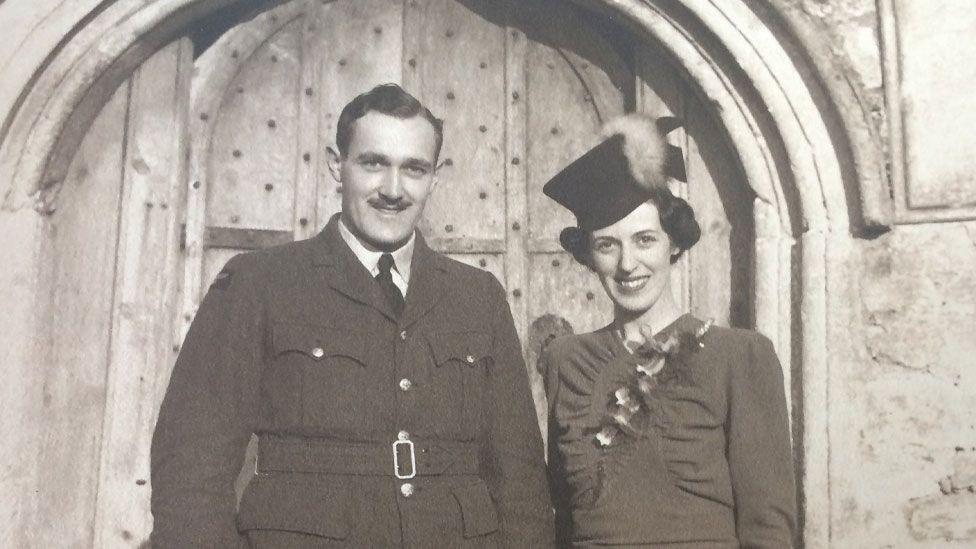
The wing commander - known as Bill in the RAF - married during the war and his widow Eileen remained close to the family
The capture of the important command and supply centre at Meiktila was crucial to the plan of General Bill Slim - who led the 14th Army in the Burma campaign - to prevent the Japanese army from organising effective action.
The 1307 Wing HQ RAF Regiment had been set up in 1942 to provide a ground defence force for the air force and its men had the specialist skills needed to defend Meiktila's airstrips.
Mrs Fell said: "Slim - commander of the 14th Army - saw that morale and supplies were the two things they needed to beat the legendarily fierce Japanese fighters and the airfields were crucial to his strategy of getting men and supplies to the places they needed to be."
The Japanese army rushed in reinforcements to besiege the town, desperate to recapture Meiktila.
Two runways could not be held at night, so Japanese patrols would move in under darkness and establish themselves on the airstrips.
The 1307 Wing HQ RAF Regiment gunners had to clear the airstrips every day, before essential supply, casualty evacuation and fighter aircraft could land.
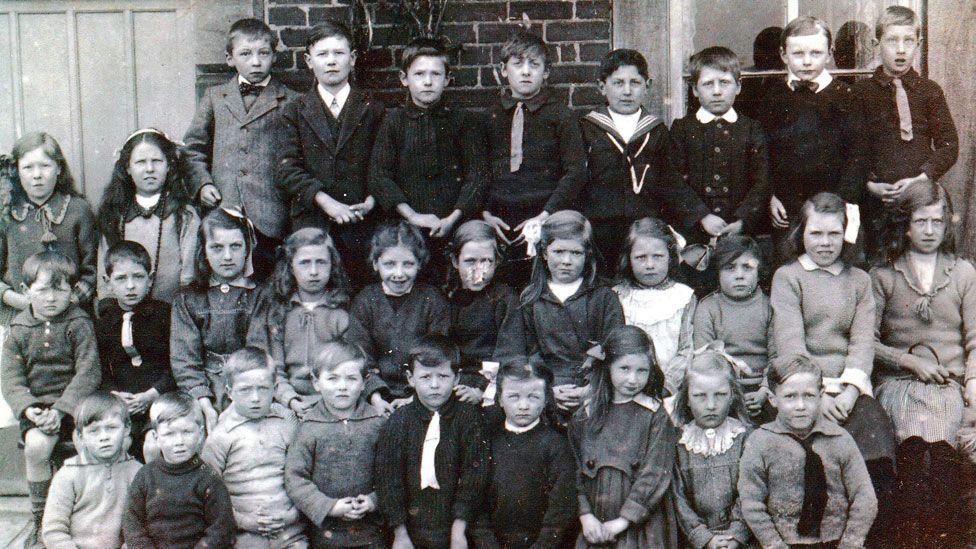
After his father died, the Lander family moved to Kirkley, just north of Newcastle, where Cuthbert started school (front row far right)
Wing Cdr Lander was responsible for coordinating the actions of the 1307 Wing HQ RAF Regiment squadrons and flights [platoons] and often led night patrols.
In his diary, he wrote: "Mortars and snipers gave us hell and it took an hour to get our casualties clear.
"Bullets were flying in all directions which didn't make our task pleasant... not a man relaxed his efforts."
Lander and his runner, Leading Aircraftman Dakers, were shot dead on 24 March.
WO MacDonald said: "The capture of Meiktila was an essential part of Gen Slim's plan to beat the Japanese and (if they had not retained it) the rest of the campaign would have been very difficult and very different.
"People talk about the battles of Kohima and Imphal, external as the turning points in the Burma campaign, but the thing that cemented those achievements was the battle for Meiktila."
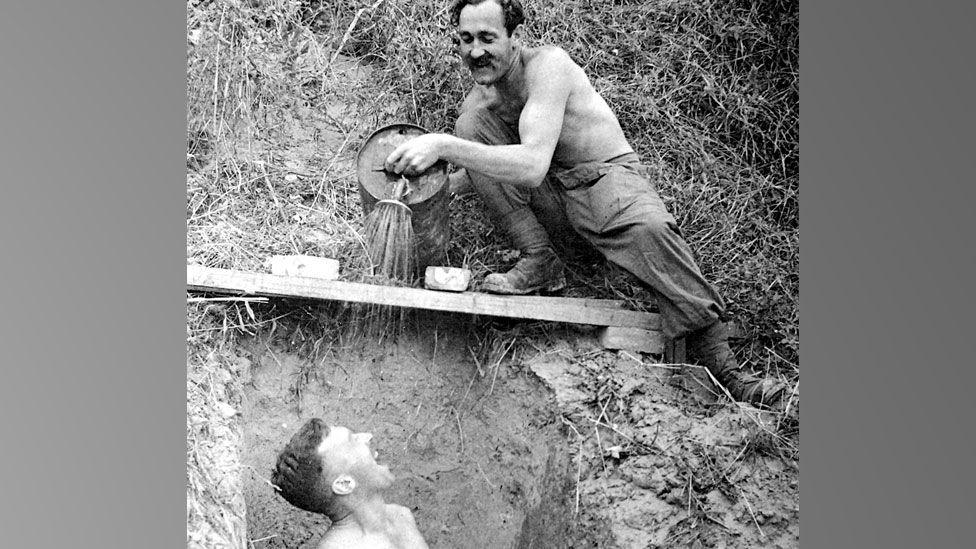
A newspaper in March 1945 reported the 1307 Wing HQ RAF Regiment were using a captured Japanese foxhole as a shower, featuring Wing Cdr Lander (right)
Wing Cdr Lander was the youngest of seven and born in Northumberland, where his father was a coachman on an estate at Simonburn near Hexham.
His childhood was one of "considerable poverty" after his father died when he was four, said Mrs Fell, who lives near Cardiff.
She is too young to remember "Uncle Cubby", but was brought up on stories of his charisma and sense of fun and the loss has been remembered down the generations.
The family remained close to his widow Eileen who never remarried, and Mrs Fell chose Cuthbert as the middle name for one of her sons.
"By 1942, he joined the RAF Regiment as a pilot officer and it's quite something to go from joining a regiment and becoming a wing commander that fast, even with dead man's shoes," she said.
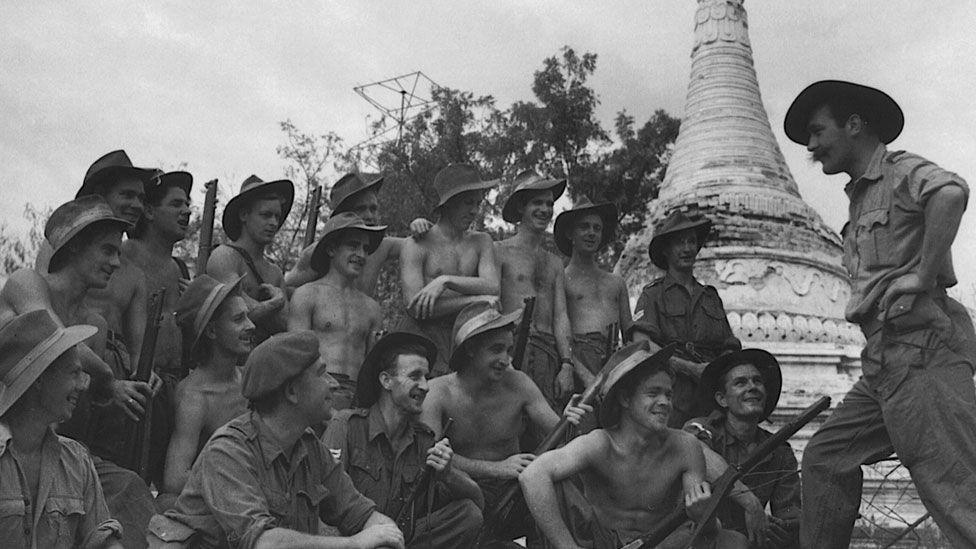
In a letter of condolence to his widow, Air Vice Marshal Vincent praised Wing Cdr Lander's "wonderful leadership"
In 1990, Leading Aircraftman Dennis Leftley remembered "there was a feeling of great loss that day [when Wing Cdr Lander died] - he was a great bloke to the lads".
Mrs Fell said: "Afterwards, another of Cubby's men described him as 'the bright star that shone in the darkness of Meiktila'.
"He paid the ultimate sacrifice for a very important cause and there's just me and one nephew left alive now, so this is our last shout to say how wonderful it would be if he could be remembered for what he has contributed."
Get in touch
Do you have a story suggestion for Suffolk?
Follow Suffolk news on BBC Sounds, Facebook, external, Instagram, external and X, external.
- Published11 August
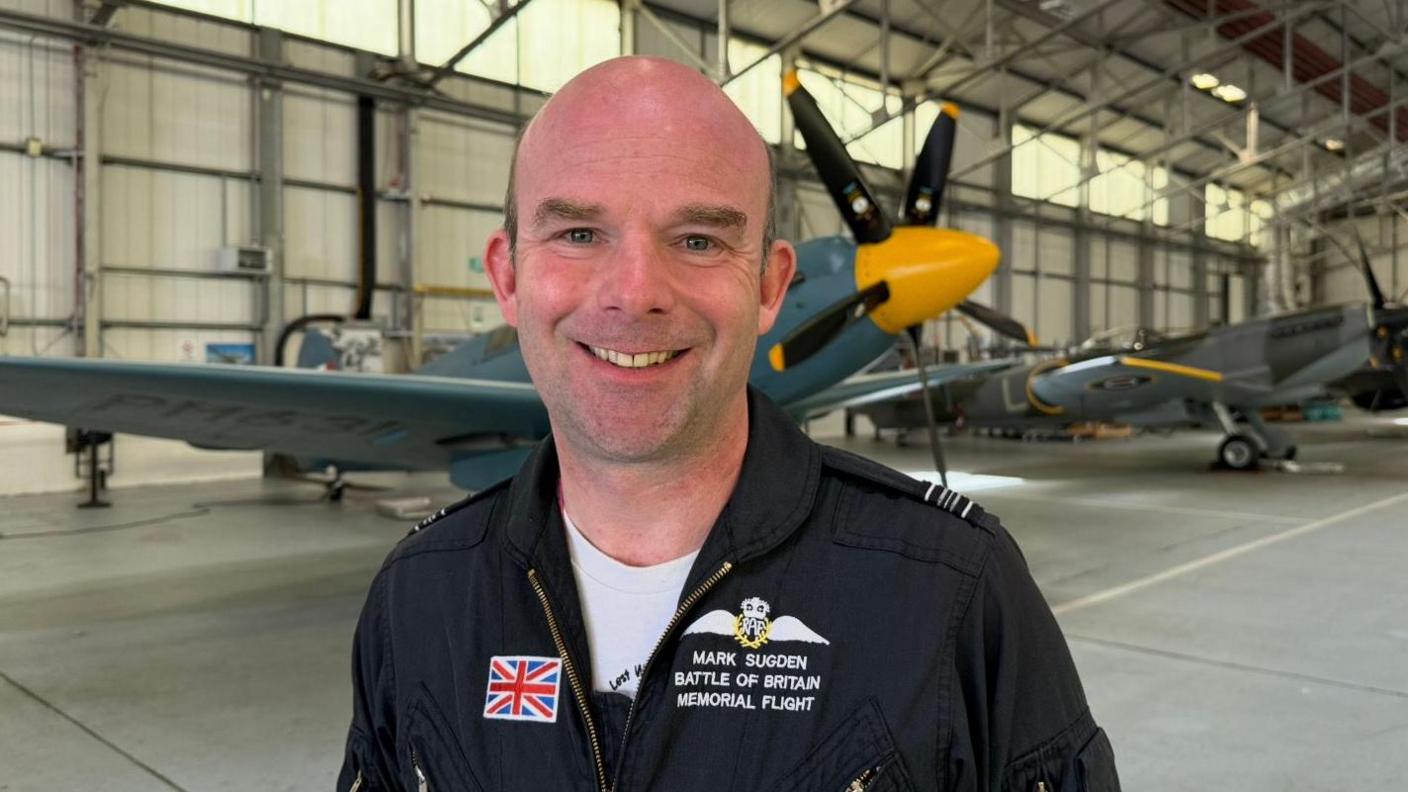
- Published11 August
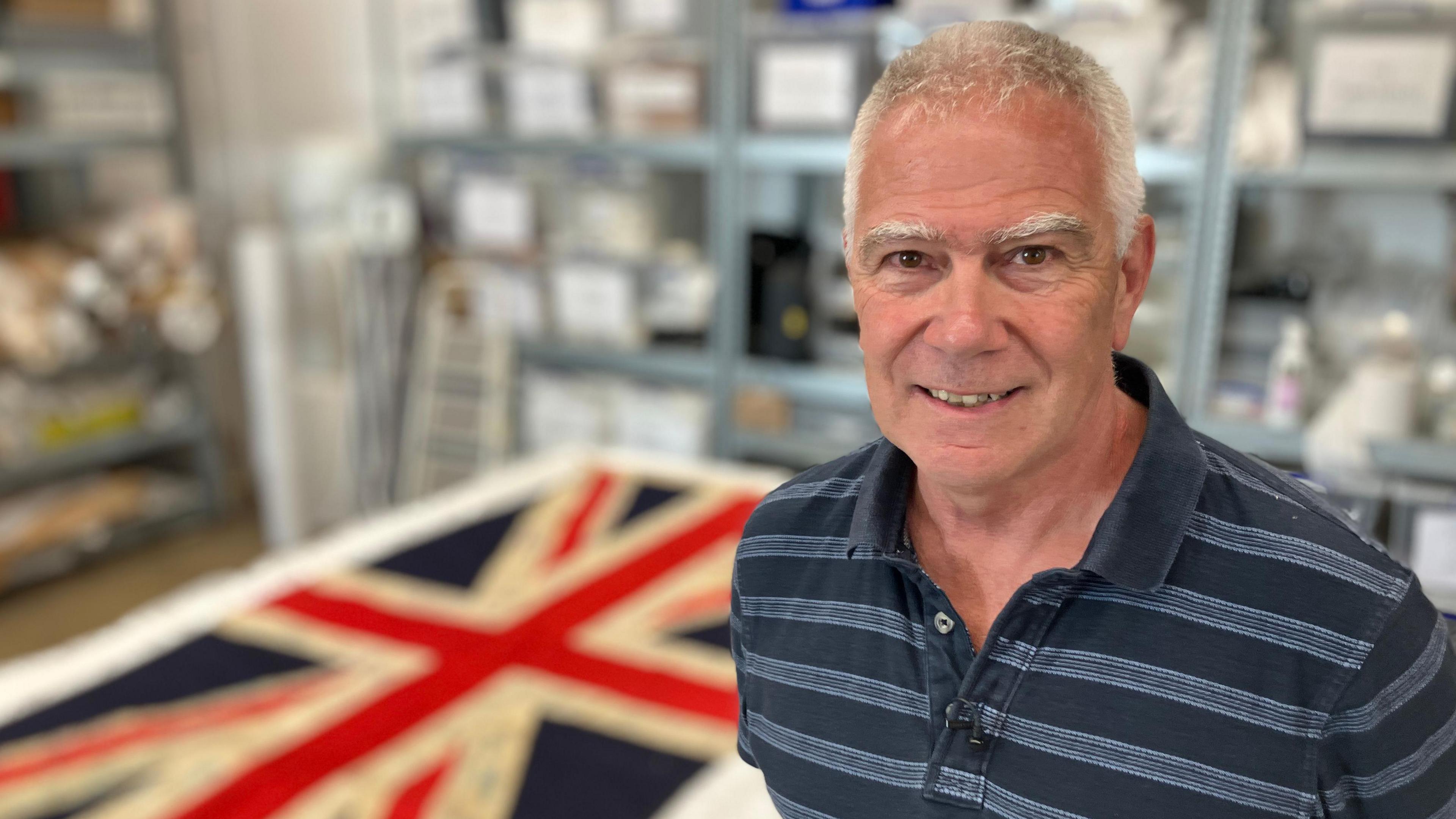
- Published11 August
